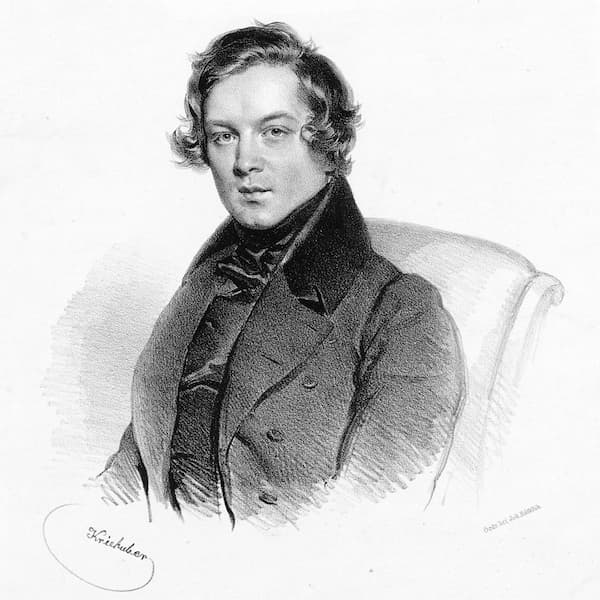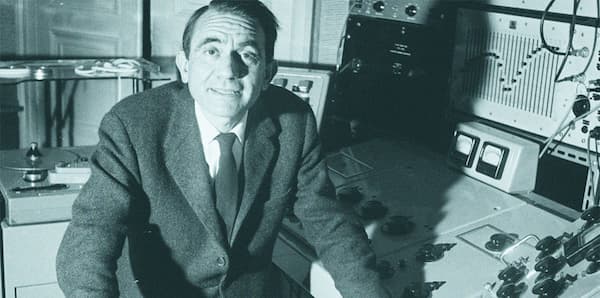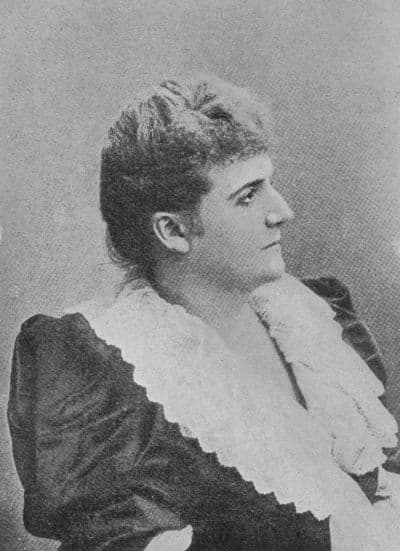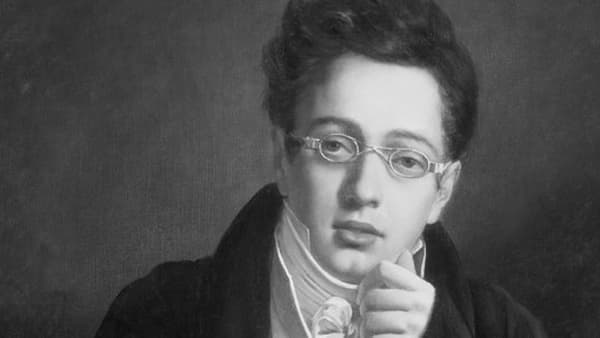Olga Rudge is most often remembered today for being poet Ezra Pound’s mistress. But she also was important in the classical music world: she helped to spark the twentieth-century revival of Vivaldi! Here are thirteen fascinating facts about the life of violinist and musicologist Olga Rudge:
1. Olga Rudge was born in Youngstown, Ohio, on April 13 in 1895. Her father was a real estate investor and her mother was a singer. When Olga was ten, her mother moved with her children to Europe so that she could study singing. Consequently, Olga studied the violin in Dorset and Paris.
2. World War I began when Rudge was 19. She contributed to the war effort by playing for the troops, but her adult career began in earnest after the war. She played a series of concerts in London, and in November 1920 Ezra Pound wrote in the New Age about the “delicate firmness of her fiddling.”
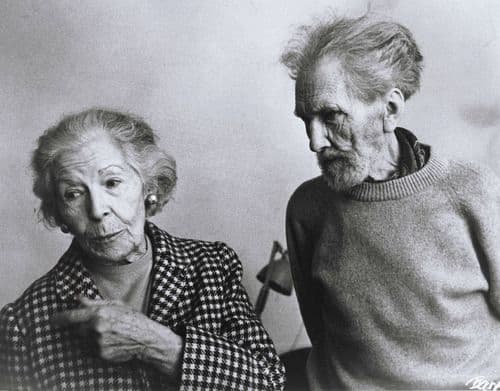
Olga Rudge and Ezra Pound
3. Rudge and Pound first got to know each other in 1923, when they were both guests at famous lesbian heiress Natalie Barney’s salon. Pound had musical ambitions: he was writing an opera and working alongside composer George Antheil. Pound asked Antheil to write sonatas for Rudge, which he did, and Pound wrote music for her, too.
Antonio Vivaldi: Recorder Concerto in C Minor, RV 441 (Daniel Rothert, alto recorder; Cologne Chamber Orchestra; Christian Ludwig, cond.)
4. Pound was married, and in 1924 he and his wife Dorothy moved to Italy, but it wasn’t long before he and Rudge embarked on a romantic relationship, too. Soon Rudge decided that she wanted to carry Pound’s child, so in late 1924, she got pregnant, canceled her spring and summer concerts, and had the baby in July 1925. She brought her daughter Maria to the countryside to be raised by a peasant family, although eventually, she would spend more time with her.
5. In 1928, her Italian roots were solidified when her real estate investor father bought her a house in Venice, which she dubbed “The Hidden Nest.” She’d often bring her daughter there. She also made a point of frequently visiting the city of Rapallo on the Italian Riviera, where Pound and his wife lived.
6. During the Great Depression of the 1930s, concert opportunities dried up. To pay the bills, Rudge began working at a music institute called the Accademia Musicale Chigiana in Tuscany. She also became fascinated with the work of Antonio Vivaldi, spearheading a revival of his work, along with Pound.
7. She was especially intrigued by the process of microphotography, a process that would enable musicians to read off inexpensive photographs of original manuscripts, instead of having to rely on expensive engraved music. Microphotography could introduce musicians who could not access archives to manuscripts that had been written centuries earlier.
8. Olga Rudge wrote the entry for Vivaldi in the famous Grove’s Music Dictionary. She also wrote a thematic catalog of his work and even organized a series of influential concerts in 1939 that helped to bring Vivaldi’s music back to the popular consciousness, reshaping listeners’ understanding of Baroque music.
Antonio Vivaldi: Nisi Dominus, RV 608 (Lynne McMurtry, mezzo-soprano; Aradia Ensemble; Kevin Mallon, cond.)
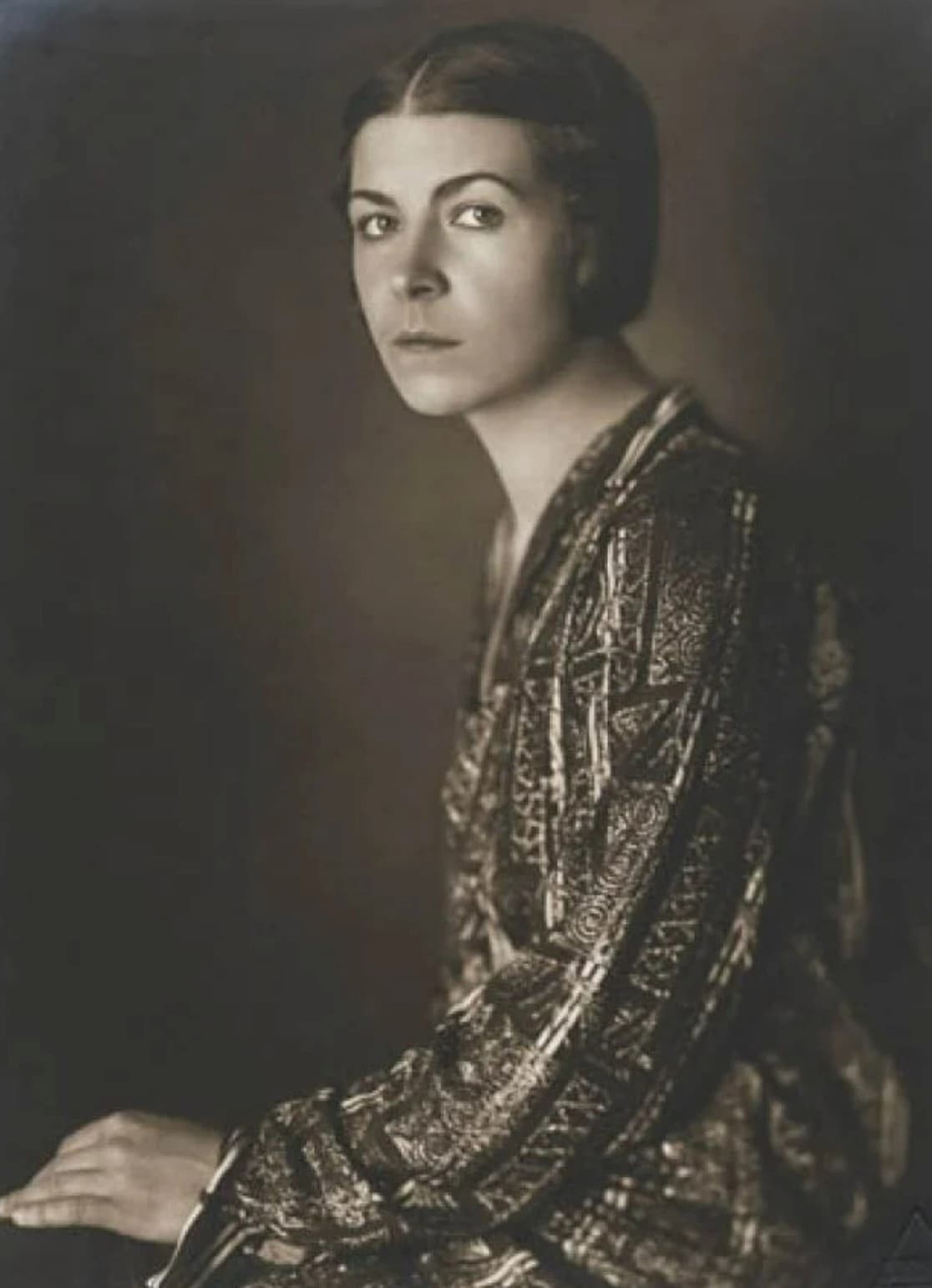
Olga Rudge
9. Over the 1930s, Pound became enamored with Mussolini and his brand of fascism. As a result, when the European political situation deteriorated, he became unable to emigrate to America – and he also, because of his American origins, was looked upon with suspicion in Italy, too. The Pounds’ home was seized and the couple ended up moving in with Rudge…a situation that neither woman was happy with.
10. When the United States invaded Italy, Pound and Rudge were arrested. Rudge was quickly freed, but Pound was declared criminally insane and forced to live in a Washington, D.C., asylum. He stayed there until 1958, when his citizenship was stripped and he was forced to settle in Europe.
11. He chose to live with his and Rudge’s daughter. In 1962, Rudge herself became his caretaker and secretary. Pound’s wife left him, and when he died in 1972, Rudge was the one holding his hand.
12. After Pound’s death, Rudge stayed in Venice and continued her work as a promoter of art and Pound’s legacy, which had been severely tarnished by his anti-Semitism and support of fascism. She died at the age of 100 in 1996, at the residence of her daughter and descendants.
13. Despite her work as a performer and musicologist devoted to uncovering forgotten works by Vivaldi, she is best remembered today for being Pound’s mistress, a violinist who refused to bow to the pressures of societal norms. Pound wrote of her: “There is more courage in Olga’s little finger than in the whole of my carcass … she kept me alive for ten years, for which no one will thank her. The true story will not be told until her version is known.”
For more of the best in classical music, sign up to our E-Newsletter
Antonio Vivaldi: Flute Concerto in G Major, Op. 10, No. 4, RV 435 (Béla Drahos, flute; Nicolaus Esterházy Sinfonia)

